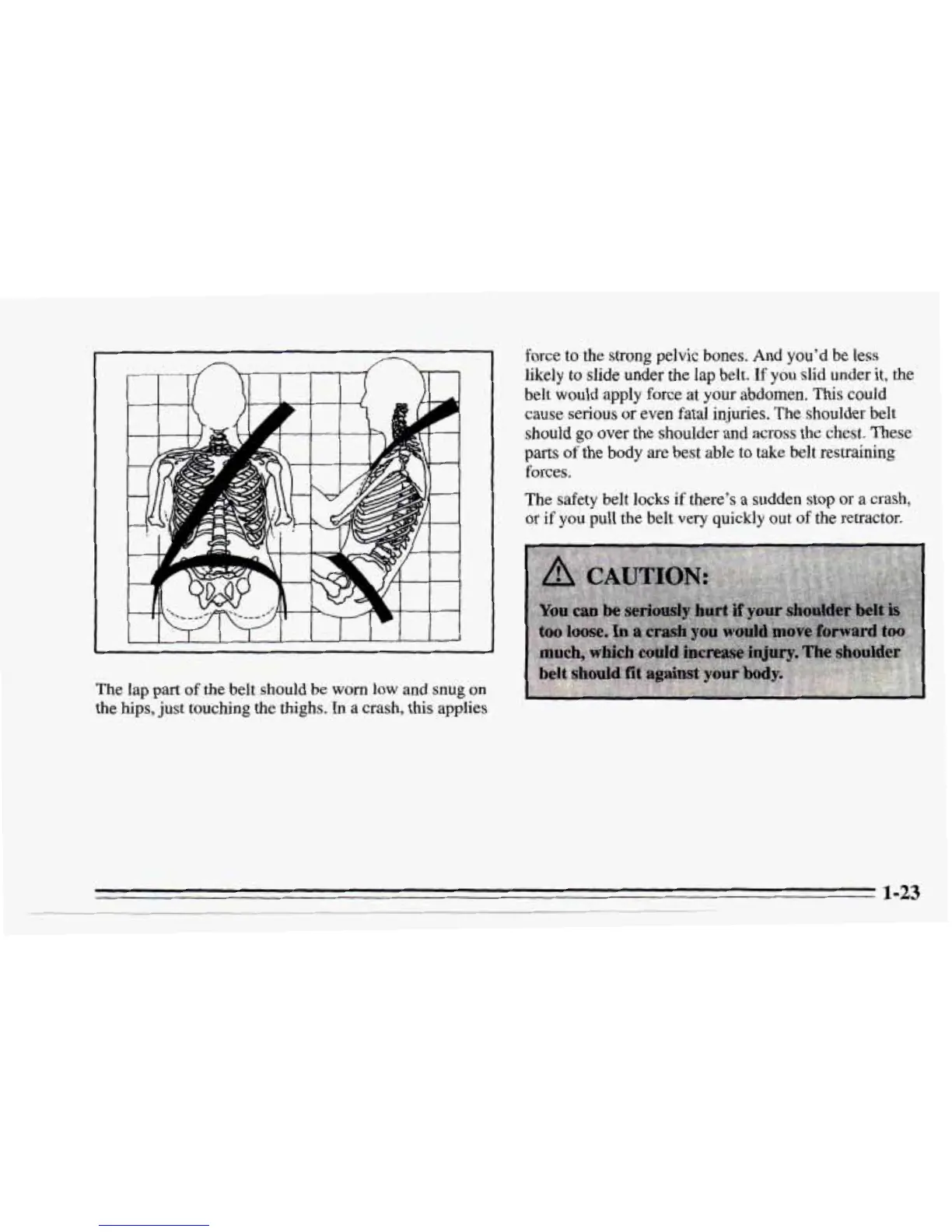force to the strong pelvic bones. And you’d be less
likely to slide under the
lap
belt.
If
you slid under it, the
belt would apply force at your abdomen.
This
could
cause serious
or
even fatal injuries. The shoulder belt
should
go
over the shoulder and across the chest. These
parts
of the body are best able to take belt restraining
forces.
The safety belt locks
if
there’s
a
sudden stop
or
a crash,
or
if
you
pull the belt very quickly out of the retractor.
The lap
part
of
the belt should
be
worn
low
and snug
on
the hips, just touching the thighs.
In
a
crash, this applies
